|
Section
0401 |
|
|
January
2015 (Volume
65 - Issue 1) |
|
Our
objective: To increase awareness,
interest, and involvement in Section activities and quality-related subjects. Visit our web site at http://www.asqmontreal.qc.ca/ |
| 10 - Other ASQ Events | 16 - Feedback/Advertising Rates | |
|
|
||
1.
Next
Event
Date Wednesday, January 21, 2015 Time 6:00 PM Place Using
LinkedIn to Network
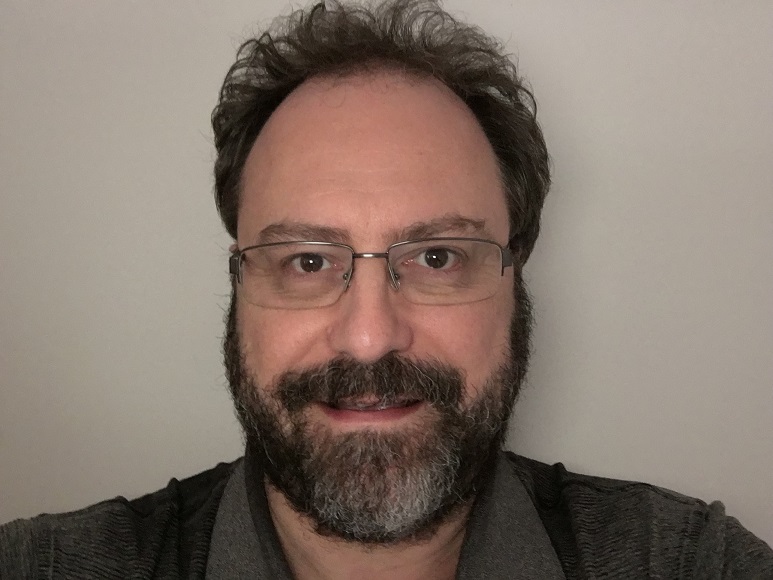 Raymond Dyer Corporate Quality Manager **************************************
Please join us on Wednesday, January 21st to hear our guest speaker present the topic of Using LinkedIn to Network. |
2.
Ad
/
Publicité
|
||||||||||||||||||||||
|
Before talking
about
the tool itself, there'll be a quick review of why we network and some
basic principles to adopt. Then we'll look at the LinkedIn tool and
some of its applications like: creating a profile, joining groups,
posting discussions (either General, Job, or Promotion), commenting on
discussions, finding and connecting to people, endorsing skills
&/or making recommendations, creating a group, searching for or
posting a job, etc. We'll also review some recommended guidelines and
touch on some potential pitfalls and problems when using this website.
Raymond Dyer started the "ASQ Montreal Quality Network - Réseau Qualité ASQ Montréal" LinkedIn group back in April 2008. It now has over 700 members. It was originally called "ASQ Montreal Quality Networking Group" but was renamed in October 2012 when Leadership Team members of the ASQ Montréal Francophone Section 0404 joined those of ASQ Montreal Section 0401 to support Ray in making this group a truly bilingual ASQ based Quality network in Montreal (even though many come from areas around the world). Raymond E. Dyer has over 30 years of experience in complex industries including explosives, chemicals, telecommunications, some aerospace, and now contract manufacturing of electric motors. He has held positions in product development and management, purchasing, and quality management and has frequently been called on to conduct various training sessions and work with cross functional groups within his organizations. Ray has also taught Quality courses at HEC Montréal and is currently the Corporate Quality Manager for IEC Holden in Montreal. Ray has been a member of the ASQ since 1993, an ASQ Certified Manager of Quality/Organizational Excellence (CMQ/OE) since 1996, an ASQ Certified Quality Auditor (CQA) since 1997, and a senior member since 2001. He has held several positions on the Executive Committee (Leadership Team) of the ASQ Montreal Section 0401 and has also participated with that of the ASQ Montréal francophone Section 0404. Ray has a B.Sc. in Biochemistry, an MBA in Strategic Management, and a Post MBA Graduate Certificate in Management. ******************************************
Cost
ASQ Members ($40) Non-Members ($50) For STUDENT MEMBERS ONLY ($30) NOTE: For students wanting to get to the Sheraton Hotel, you can easily take the STM Express City Bus 747 which will drop you off at the Pierre Elliott Trudeau airport. After which, you may take the Sheraton's free shuttle to get to the hotel. Click HERE for more details. After the meeting, an ASQ member will often be available to drop off a student at a nearby bus or metro station. Bring
your business cards and be ready to
network. To
register for any event or for more information on events please
contact:
Mr. David Tozer at 514-694-2830 or E-mail; event@asqmontreal.qc.ca 3. The Editor's Corner
About one year ago, on January 23, 2014 to be exact, a nursing home in L'Isle Verte, Quebec (near Rimouski) made the news because of a devastating fire that killed approximately 32 people and injured 15 others. Last month during the coroner's inquest into the fire, one of the co-owners of the seniors' residence admitted that he had not trained either of the two night employees on the residence's emergency evacuation plan. Instead of immediately trying usher seniors outside to safety, the night employee on staff decided to wake up the other co-worker, claiming that the evacuation would be conducted more efficiently with two people instead of one. The reality though is that precious time was lost in doing this, time which could have been used to save some of the 32 people who ultimately lost their lives. I have been in the Quality profession long enough to see not just lapses in the training of personnel, but specific lapses in the training of "non-day shift" personnel. Often, if not always, the main shift for a company is the traditional "9-to-5" shift. Most employees, both shop and office, work during this time, while evening or night shifts involve reduced staffs. And I have been in audit situations where it was very obvious that the company was putting less emphasis on training their employees on these "off" shifts. Auditing tip: when auditing the training process of a company, assure to verify the training records of personnel working on all of the company's shifts, not just the day shift. The reality of the L'Isle Verte fire is that had the night employee been properly trained on the home's evacuation process, he would not have wasted precious time going to find the co-owner who did. He would have known what to do and started evacuating people immediately. No doubt lives were going to be lost one way or another, but as we often try and do in our Quality roles, we try and minimize the opportunities for failure. Going forward, assure that your training needs are properly met by your employer. Your life, and the lives of others, may depend on it. *********************************************************
Any feedback? Click on the link in the bottom right corner of this section and let me know. Thanks. |
|||||||||||||||||||||||
4.
A Word
from
your Section Chair
EDITOR'S NOTE: Francois is currently away from his Section Chair desk. He will be back in time for the February 2015 newsletter. |
|||||||||||||||||||||||
5.
Had
You Come
to the
Last Event
By
Eric Stern, ASQ Senior Member, CQA,
Publicity co-chair
 Had you come . . . SOFTWARE QUALITY Brenda
Fisk obtained her Software Quality Engineer Certification a few months
ago. If you aim to get that certification, you should have attended the
event because she covered as many aspects as possible in the short time
given to her. She also provided a large number of valuable references.
I will try to highlight a few aspects that I have found most
interesting. Amongst the gurus she mentioned is Linda Westfall and
Philip Metzger, who published “Management of a programming
project”.
For taking the certification exam she used extensively the subject index in order to quickly find the BOK answers in, and confirm her initial correct response. The planning, tracking, controlling and risk management aspects of project management reduce risks. The business decision regarding the amount of testing is important at the beginning of a project. Testing has 5 roles. Deliverables need to be validated. She graded user satisfaction from basic to performance to excitement. Kostya Polinkevych interjected that customers always want more. The answer was that managers need to manage the cost and delivery time expectations. Software Development Life Cycle Model (SDLC) she described as a high level representation of the software development “process" which provides a framework for detailed definition of the process; it defines the stages or phases through which software development moves; covers the life of the software product from conception to sunset; depicts interrelationships between major milestones, baselines and deliverables; helps management plan activities and track progress. If you have never heard of waterfall, v-model, w-model or spiral model methodologies, now may be a good time to start looking them up. There are also test-driven, feature-driven, incremental, concurrent, and evolutionary models. You may need to pay attention to assurance, control, and proportion of planning vs. testing. Specify the level of what vs. how. Be clear about requirements. Be aware of the increase in costs at each new phase of development and the resulting increase in costs per defect over time. Agree with the customer on the test strategy. Validate that you build the right thing, verify that you have built it right. Important aspects of testing: business effect, regression against anything you haven’t touched, usability including methods to get out of messes, structural to review the effect of you pulling the plug, security covering encryption, volume stress effects and then the …ility aspects: reliability, availability, robustness, portability, and so on. Institutionalize in the organization existing standards. Sign-off, manage changes, and consider module reusability and documentation standards. ISO 24765 was also mentioned several times during the presentation. No way could I comprehensively mention here the very large amounts of information that Brenda provided. As a conclusion, she argued the necessity to use all Software Quality Engineering Processes to ensure quality and avoid failure. **************************************************
Eric Stern, CQA, senior member, publicity co-chair, developmental coach and consultant at Expertech CMSC, expressing his own opinions (ericst@iseffective.com). For networking with local quality professionals explore these groups: http://tech.groups.yahoo.com/group/Quality_Montreal/ http://www.linkedin.com/groups?gid=90170 |
|||||||||||||||||||||||
6. The Interview Corner
Current and Prospective Challenges to
the Quality Society
of North America
and Ways to Resolve Them These days we observe multiple global changes in our social and cultural life, service industry and manufacturing. In order to withstand we need to know what factors are causing these changes, what their possible outcomes are and what happens if certain tendencies develop into fully-grown processes. We would like to identify and evaluate these factors as early as possible in order to foresee the impact in short and long terms; we would like to be ready to take certain actions if needed in order to mitigate or to prevent that impact. Our special area of interest is factors which may have direct influence on quality in services and manufacturing and may require corresponding preventive actions. We need to identify them, evaluate them and decide what actions are to be taken. Recently, we had the opportunity to discuss the steps above with a highly experienced engineer and quality expert, Mr. Eric Hosking, CQE, CSSBB. Eric is a member of the executive committee of ASQ Section 401. He is an excellent source of knowledge, independent thinking, original judgement and deep analysis. Eric possesses a reciprocal understanding of processes in our society, as well as in the world of quality. His opinion is always valuable and highly appreciated by his colleagues. 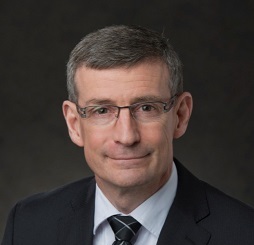 Kostya: Our readers might be interested to know more about you and your work experience. Could you please tell us about yourself? Eric: I am a native of Montreal. I spent 10 years in Toronto. I graduated from the University of Toronto with a Bachelor of Mechanical Engineering in 1979. I came back to Montreal and I started my career in Montreal. I worked at Pratt & Whitney Canada. I have been working there ever since. I spent 20 years working in engineering, initially in aerodynamics (intake and exhaust ducts of the engine) and then in testing and development of engines. I have spent the last ten years working in Quality. Kostya: Why did you decide to move to the world of Quality? Eric: It was not a decision that I made; Management directed me to change from the job I had in operations to the job in quality. I got there because in the business unit I was running, I had a very good record in Quality, and I had focused heavily on Quality in that business unit. Kostya: Can we assume that your unit actually demonstrated significant achievements in the area of Quality; I mean your company saw that you were managing it well, so they decided to use your knowledge and your experience to improve other areas of Pratt & Whitney? Eric: They asked me to go into Central Quality, such that I could have an influence across all business units. Kostya: What was the last position that you obtained in Engineering before you changed to Quality? Eric: I was a Director of a Component Center. Until then in Engineering, we had many design organizations. They ultimately collapsed into three Component Centers. Kostya: What problems are you dealing with now? Eric: I work on projects which span United Technologies. Pratt & Whitney Canada, where I work, is a subsidiary of United Technologies Corporation. UTC is a conglomerate which has key brand names like Otis Elevator Company, Carrier Corporation, Chubb Fire & Security Ltd, Kidde (home and fire security devices), Sikorsky Helicopters, Pratt & Whitney, and UTC Aerospace Systems which provides propellers, landing gear controls, etc. At the corporate level we work on quality projects. We trying to standardize and raise the bar on quality across all divisions of the conglomerate. These standards apply equally well to the manufacturers of aero-engines, airplane systems, air conditioners, fire and security systems, as well as other ones. Kostya: Does your degree in Mechanical Engineering help you in your work? Eric: Yes. Almost all of the UTC products are in mechanical equipment domain. Kostya: Do have any certifications from ASQ? Eric: Yes, I have 3 certifications from ASQ. I am a Certified Quality Engineer (CQE), I am a certified Six Sigma Black Belt (CSSBB) and I am a Certified Quality Auditor (CQA). Kostya: Do these certifications help you in your everyday work? Eric: The Six Sigma Black Belt and the CQE have a fair concentration in the statistical process control. When I first came to Quality at Pratt Whitney Canada, it was to build a system that would allow us to use statistical process control such that we could deposit the data into the software backbone and analyze and have access to the data. So we created not only the internal awareness and education that people need so they could practice statistical process control, we gave them a software tool to allow them to implement statistical process control on the shop floor. Kostya: In your opinion, which changes are the most important that we can observe these days? Healthcare, Manufacturing, etc? Eric: I see many complex mechanical devices that are functioning flawlessly despite extreme operating conditions. There are many seemingly simple things around me - telephones or computers, even my chair, which are actually complex mechanical devices. These products work flawlessly for many years. In contrast, the same cannot be said for all businesses I have experience with. I often do not see proper quality in customer service. They often do not know how to deal with customers. Recently I broke my arm and I needed to wait in the hospital for 7 hours before they treated me which took another hour. Tremendous quality/productivity improvement in services are needed. I would like to give another example. My car is a very complex device, all systems of which work as designed despite heavy loads and extreme weather conditions including temperature changes from -40C to +40C degrees. Many quality tools, statistical process control, standardizing and manufacturing techniques were used to deliver this extremely high quality product. At the other end of the spectrum, there is an industry like medical service industry which, outwardly, appears to have almost no standardization or very limited amount of standardization. Kostya: If our health care had proper standards, you would not wait for seven hours to be seen? Eric: I have been to American Society of Quality conferences; different conferences of Quality and Improvement. Each conference features dozens and dozens of seminars, some given by health care professionals. Those health care professionals are making claims that they have used Quality tools with great success, and how the wait times have dropped dramatically. How the rendering of care has improved dramatically. So it can be done. Kostya: Do they have Quality specialists in health care? Eric: The people I see at these seminars don’t appear to be dedicated Quality specialists. They appear to be the staff at the hospital who have studied Quality. Whatever their qualifications are, somewhere along the line they are taking the time to learn Quality techniques or they are engaging Quality consultants. They are relying on that training or those consultants to improve their service rendering. Kostya: Do you believe that this is the right way, or do you have other approaches? Eric: I admire their approach. Is it the best one? It is not that easy to improve everything in health care. Hospitals work within medical systems; there are probably 10 or more different medical systems in each of the 50 states in the US alone. The solutions will be as diverse as the number of systems/hospitals being addressed. Kostya: So, you believe that we (ASQ) need to continue to participate in those seminars, contacting and promoting Quality to health care workers, possibly even write some articles, and even do some researches for them, about implementation of some methods of Quality? Like root cause analysis? Eric: ASQ has a Service Quality Division. Do I believe they need it? Absolutely. More would be better. Note: American Society for Quality website. Service Quality Division section contains a variety of valuable assets on quality of services such as Competitive Advantage Newsletter, the Service Quality Body of Knowledge (SQBOK), Service Quality Tools, and Service Quality Body of Knowledge (SQBOK) Training and Resources. Kostya: A few months ago you mentioned that more and more of “baby boomers” (who comprise significant part of Quality society of North America) will be retiring in upcoming years. Once they retire, there will be fewer specialists on quality and we will have a certain deficit of Quality experts, right? Eric: Well, there is definitely a demographic issue in North America. Baby boomers are retiring, and over the next ten years, I think we will see the last part of the baby boom retire. The baby boom is considered from 1946 to 1964, so those people who are now 50 years old, are the last of the baby boom people. So in ten years, they will be sixty and most of them will have retired or will be planning to shortly. Kostya: So you believe there will be a huge deficit of Quality Specialists on the market? Eric: I think so. I believe there is a deficit right now. Kostya: What will happen then? Your industry is very important; what will happen if specialists like you retire? The problem is very serious, correct? Eric: I think it’s very serious. But I don’t know if the North American management is dealing with it in a proactive way. Most people are either cost cutting or controlling cost, maintaining or downsizing their workforces. Kostya: Can you say that this problem is currently being overlooked? Eric: I am not exposed enough to how the other industries are reacting. In my own industry the problem is acute right now. Kostya: I have an impression that a lot of employers rely on headhunters. Once headhunter agencies advertise a position, they believe they will easily find hundreds of good candidates. Do you think this is a good assumption? Eric: I think people are not relying on headhunters much, and that is their problem. They should be relying on headhunters. Employers are looking for contract labor. Labor where there are no strings attached. So if they have to control cost, or reduce cost, they can just let the contract labor go. I think that is the stronger candidacy. Kostya: So you have a problem with deficit of Quality Specialists right now? Eric: I wouldn’t say problem of deficit right now. What we have is a demographic threat of losing our specialists. Kostya: So do you believe we need to act proactively? Eric: Absolutely. Kostya: We cannot just make specialists in one day. We need to educate them to give them experience, do you agree? Eric: Quality is a complex set of disciplines. I have been in it directly for ten years and I still think that I have a lot to learn. I am sure 15-20 years is what it takes, something like that, for someone to become completely knowledgeable in the broad spectrum of quality disciplines. Kostya: Your industry is very important; the job in this area cannot be given to anybody. The person who works in it has to be a proven specialist, has to have a lot of knowledge to contribute and a lot of experience; be responsible and following procedures. The person has to come through years of study and practice. Eric: Absolutely. Kostya: Do we need to start special courses on preparation of such specialists? Do you see any ways how to address this potential issue? Eric: Many Universities in Canada now offer specialized education in Quality, at just about any level you want, Bachelors or the Graduate level. I am very happy to see that. When I went through the educational system no such thing was available. My struggle is that we have not hired so many people in the last ten years. We hadn’t had a chance to get a good sample of the product of all of this newly available Quality training, so I don’t really have a good view of how much better prepared these people are coming out of these University programs; how much better prepared they are to contribute to Quality issues we face in our company. We know the education programs are there, but we don’t know how good the programs are. Kostya: Do you think we may need something similar to the way doctors are educated? Like going through residency programs before becoming a doctor? Eric: I believe that to be a good Quality expert you need to have at least a decade of relevant experience. You need to be exposed to all of the many Quality disciplines. Kostya: Do you think that we need to invite these students that study in the programs, to somehow implement their knowledge? Such as internships? Do you have any good examples of the programs offered at Universities? Eric: I would want the student to take advantage of the work terms that are encouraged by the University programs to make sure that they have worked in an industrial environment so that when they finish their degree, they would have meaningful work experience which is relevant to their training. The best thing for us is somebody who comes with real work experience. Some companies have programs where they support students while they are in the University system; they create a pipeline. Kostya: Can you give an example? Eric: More than one of the divisions of United Technologies is now doing this in the US. Kostya: Do you believe that the government needs to help educate the Quality specialists? Need to analyze the future demand and then to address that problem as well? Eric: I don’t think that government intervention would achieve what the industry needs. I think that industry and academia collaboration will work out the solutions. Kostya: How can ASQ Montreal help educate these students? We have a student branch at Concordia University. Eric: Unfortunately for the ASQ much of the technical information for Quality is readily available in textbooks and online. You can put together your Quality curriculum without having to ask for the intellectual properties of the ASQ. Kostya: What are your plans for the future? Eric: Well, I might get one more certification. I am looking at Certified Reliability Engineer. Something that has a relationship to the work I do. After that, I think I would have all the certifications that I need. Kostya: Thank you for your valuable time and expertise you shared with us. *********************************************
Eric Hosking has worked for many years in the quality field in aerospace industry, mechanical engineering, safety and security system development. He made tremendous contribution to the success of standardization and Quality improvement efforts across all divisions of the United Technology Corporation. Eric is an ASQ Certified Quality Engineer and Certified Six Sigma Black Belt professional. Currently Eric is a member of Executive Committee of ASQ Section 401 having served in many roles most recently as treasurer. 7.
2015 Planned Events
Date, time, and location will be confirmed as we progress into the year. Most events are planned for Wednesday evenings and are held at the Sheraton Montreal Airport Hotel. Watch the Newsletter and our web site for further details.
Date Event |
|||||||||||||||||||||||
8.
Welcome
to our New Members
DECEMBER
2014
Hamid Abdolmalek Calvin Cheung Othmane Faroud Bahman Fathi Fatima Lahsini Josee Leblanc Nelly Laetitia Lentchou Kouayeb Adriana Lerfino Nancy Narayan Jon U. Schafer Jean Martial Teguia Fotso Javier Eduardo Vazquez Gonzalez |
|||||||||||||||||||||||
9.
Site
Members
ASQ Montreal Section thanks our Site Members: |
|||||||||||||||||||||||
10.
Other
ASQ
Events
|
|||||||||||||||||||||||
11. ASQ NewsASQ
Survey: Manufacturers’ Outlook Positive for 2015, Anticipate
Continued Revenue Growth DMAIC
Roadmap Leads Boston Scientific Heredia to Reengineer Packaging Lines
|
|||||||||||||||||||||||
12.
ASQ
Montreal Section Education Program 2014-2015
By
David
Tozer,
Ph.D., ASQ CQE and SSBB, Education & Audit Chair Having ASQ certification gives you an edge in the market and can significantly increase your income. ASQ Certification often leads to higher paying employment. The money invested in education and certification increases chances of finding employment quickly in the down sizing environment we live in. People who take the section sponsored refresher courses, and spend at least twice as much time as spent in the classroom on self study, have an 80%, or better, chance of passing the examination on the first attempt. Certified Quality Engineer Topics include: quality concepts, cost of quality, human resources, team formation and group dynamics, inspection, metrology, sampling, reliability, quality standards, quality audit, statistics, design of experiments, process improvement, liability, and modern management methods for improving quality. Certified Six Sigma Black Belt Topics include: quality concepts, cost of quality, enterprise wide deployment, business process management, project management, team formation and group dynamics, define, measure, analyze, improve, control, lean enterprise, statistics, design of experiments, and design for six sigma. Certified Six Sigma Green Belt Topics include: quality concepts, cost of quality, enterprise wide deployment, business process management, project management, team formation and group dynamics, define, measure, analyze, improve, control, and statistics. Certified Manager of Quality/Organizational Excellence Topics include: quality concepts, quality planning, customer focus, quality standards, project management, cost of quality, team formation and group dynamics, human resources and improvement.
Certified
Quality Auditor Topics
include: quality concepts,
team
formation and group dynamics, management responsibility, audit
objectives, audit preparation, audit conduct, audit reporting,
sampling, and basic statistics.
Certified Quality Inspector Topics include: quality concepts, team formation and group dynamics, geometry, metrology, reading drawings, mechanical processes, statistical process control, inspection, and sampling. Calendar and Registration Form Questions?
In house
courses, etc.: With more than 35 years practice and teaching Dr David Tozer PHd.: (514) 694-2830, education@asqmontreal.qc.
|
|||||||||||||||||||||||
13.
Executive
Committee Meetings & Officers
Section Executive
Committee
(Leadership Team) Meetings are held at different locations, starting at
6 PM. The next regular meeting is tentatively scheduled for : February
3, 2015 Consult the List of Your Executive
for
2015 here |
|||||||||||||||||||||||
14. RecertificationRevised Recertification CostPlease note there are revised costs for recertification. Some members are using the old journal which lists the previous cost. Submitting it this way will only delay your recertification while ASQ attempts to contact you for your permission to use the new price. I have attached the front page of the application journal. Two of them. Both are in PDF format. One is merely a form to print out and complete by hand and the other is a fillable form to be printed out after you have completed it. Basic hand form Fillable form If you are a member of Section 0401 Montreal, then contact Norman Dickinson at certification@asqmontreal.qc.ca or at 514-334-6102 to find out where to send your journal. If you are NOT a member of Section 401, then contact ASQ directly at 1-800-248-1946. 15.
Unemployed Member Dues
Unemployed ASQ members receive a discount on their membership dues based on consecutive years of membership.
Eligibility Criteria
Benefits
NOTE: The following links require that you be logged into your account before you try to activate them. Download the ASQ Unemployment Program
Application
PDF (105 KB) |
|||||||||||||||||||||||
16.
Feedback
Please send us your comments about the ASQ Montreal Section 0401 E-Newsletter (topics, layout, length, etc.). Do you want to contribute an article (English or French) or a good idea? Contact us by e-mail. |
|
||||||||||||||||||||||
Pass
it on
We invite you to forward this Newsletter to friends and colleagues who may be interested. |
|||||||||||||||||||||||
|
The
ASQ
Montreal
Section 0401 Newsletter is prepared by and published for its members. How to
Opt Out. This
e-mail
is being sent in the course of normal Montreal Section
business
to the e-mail address of record. We are not responsible for forwarded
e-mails. If you no longer wish to receive e-mail communications from
the Montreal Section (your section) of ASQ, please visit your ASQ
account to unsubscribe or
reply to this message, indicating Opt
Out in the
e-mail body
and in the title. |
|||||||||||||||||||||||


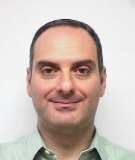
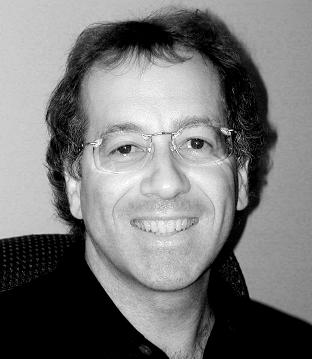
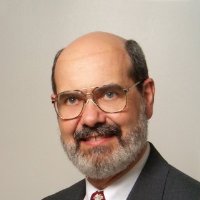 By
David Tozer,
ASQ CQEand SSBB, Education and Audit Chair
By
David Tozer,
ASQ CQEand SSBB, Education and Audit Chair